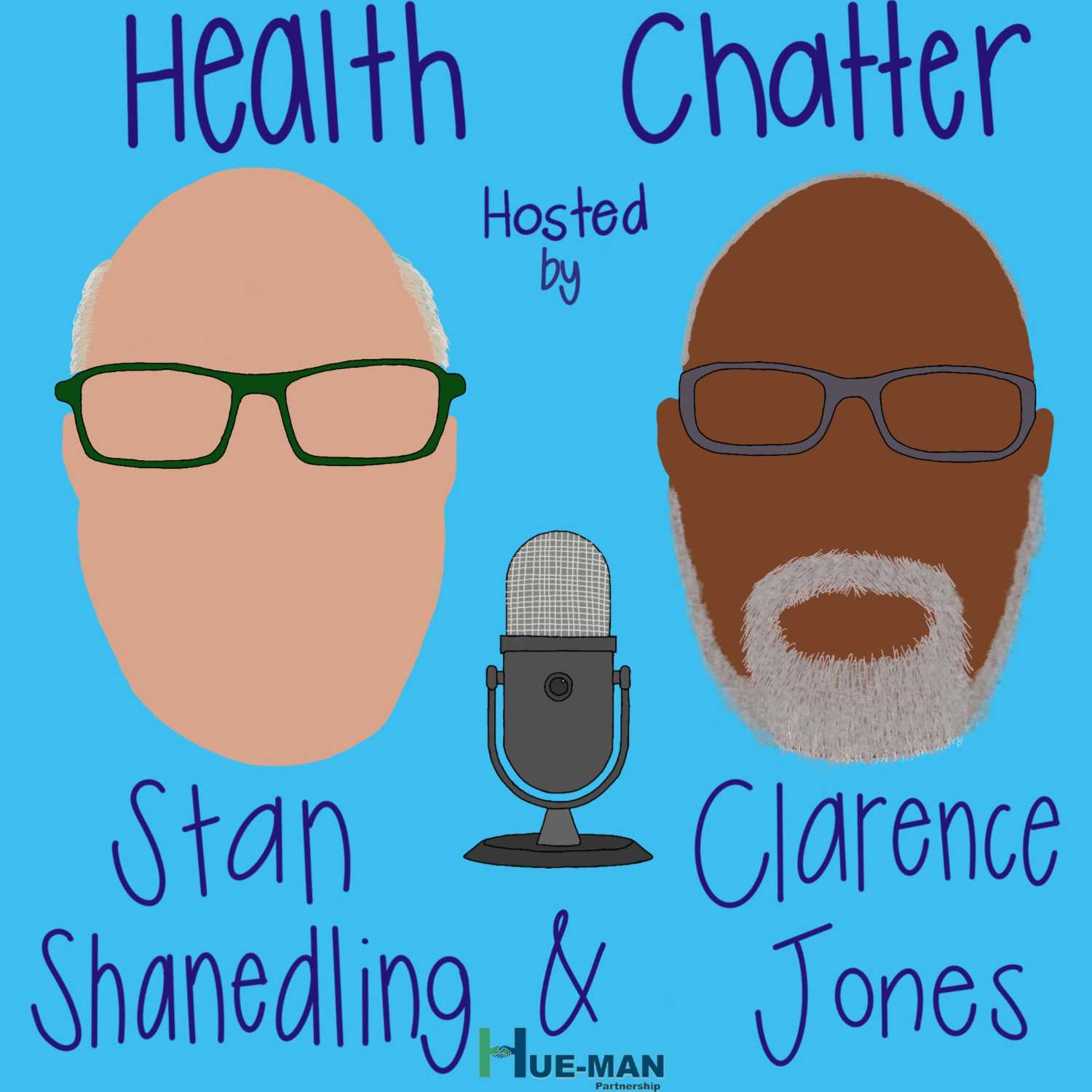May 13, 2023
Family, Friends, Colleagues: Social Connection and Health
The player is loading ...

In this episode, Stan and Clarence chat about the vital role family, friends, and colleagues play in our health.
Join the conversation at healthchatterpodcast.com
Brought to you in support of Hue-MAN, who is Creating Healthy Communities through Innovative Partnerships.
More about their work can be found at http://huemanpartnership.org/
Research
- How do your personal relationships affect your health - Positive impact
- Solid scientific evidence shows that social relationships affect a range of health outcomes, including mental health, physical health, health habits, and mortality risk
- Prospective study in Alameda County showed that greater overall involvement with formal (e.g., religious organizations) and informal (e.g., friends and relatives) social ties was associated with more positive health behaviors over a ten-year period
- Health behaviors refers to exercise, consuming nutritionally balanced diets, and adherence to medical regimens
- Social ties promote health. Mechanisms include (but are not limited to): social support, personal control, symbolic meanings and norms, and mental health
- Social support: Social support may have indirect effects on health through enhanced mental health, by reducing the impact of stress, or by fostering a sense of meaning and purpose in life
- Symbolic meaning and norms: Studies on adolescents often point to the meaning attached to peer groups (e.g., what it takes to be popular) when explaining the influence of peers on alcohol, tobacco, and drug use
- Meanings attached to marriage and relationships with children may foster a greater sense of responsibility to stay healthy, thus promoting healthier lifestyles
- How do your personal relationships affect your health - Negative impact
- On the flip side marriage and parenthood have also been associated with behaviors that are not beneficial to health—including physical inactivity and weight gain
- Marriage is the primary source of both support and stress for many individuals
- Poor marital quality has been associated with compromised immune and endocrine function and depression
- Caring for a sick or impaired spouse is associated with increased physical and psychiatric morbidity, impaired immune function, poorer health behavior, and worse health for the provider
- Relationships with risk-taking peers contribute to increased alcohol consumption, and having an obese spouse or friend increases personal obesity risk
- Emotional Support
- Animals: emotional support animals can provide quantifiable benefits to individuals with serious mental illness who are experiencing depression, anxiety and loneliness.
- a statistically significant decrease in participants' depression, anxiety and loneliness as measured by standardized scales.
- assessments for suicide and finding people's pets were frequently a protective factor.
- Stats regarding healthy relationships:
- Cumulative empirical evidence across 148 independent studies indicates that individuals' experiences within social relationships significantly predict mortality.
- people with stronger social relationships had a 50% increased likelihood of survival than those with weaker social relationships.
- Healthy People Goal 2030: Increase the proportion of adults who talk to friends or family about their health.



